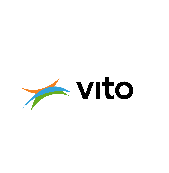sustainable PROduction of bio-based Multi-reactive ISocyanates
PROMIS will help the chemicals and materials industries in the production of more sustainable polyurethanes (PUs). Using inventive organic chemistry and catalysis, novel bio-based PU building blocks, called isocyanates, will be designed. As a result, current challenges in polyurethane industry will be addressed through closely interlinked valorisation goals.
New bio-based isocyanates
Currently, commercially available isocyanates originate from petroleum resources and are thus non-renewable. To replace these petrochemical isocyanates, PROMIS will investigate the design of new or “lookalike” bio-based isocyanates originating from biomass sources. Their molecular structure and chemical reactivity will be compared to the commercial benchmarks, identifying their potential as drop-ins or superior substitutes. PROMIS aims at the production of these new bio-based structures with distinct reactivities and/or extra beneficial properties (e.g. oxidative & UV stability and/or reduced (eco)toxicity).
Safe and sustainable polyurethane production
Polyurethane materials are made from the chemical reaction between isocyanate and polyol building blocks. PROMIS will focus on improved PU sustainability in several ways. First, the bio-based content of the isocyanate building blocks will be increased by starting their production from biomass resources such as lignin and carbohydrates. Crucially, the PROMIS project will select those lignocellulose biomass streams that will not compete with the food or feed industry. Furthermore, the project will identify those synthesis methods that generate the least amount of waste and involve reagents with minimal risks to the environment and human health. In particular, current commercial petrochemical isocyanate production requires phosgene, which is a highly toxic chemical reagent. In PROMIS, alternative and more sustainable isocyanate synthesis methods will be developed, removing the need for phosgene entirely.
Intercluster project
In the search for new bio-based building blocks for renewable PU materials, PROMIS creates an interface between the chemistry and materials domains. Therefore, PROMIS is set up as intercluster strategic basic research supported by the Flemish chemistry and materials innovation spearhead clusters, Catalisti and SIM respectively.
Flemish Bioeconomy Label
In the framework of the Flemish government’s policy plan for the bioeconomy, PROMIS was awarded the Bioeconomy Label by VLAIO. Financed through the recovery plan ‘Vlaamse Veerkracht’, the policy plan for the bioeconomy seeks, amongst others, to stimulate spearhead clusters like Catalisti and support their collaborative innovation projects. PROMIS is awarded the Bioeconomy label, as it matches one or more of the focus themes identified by the policy plan, including the conversion of biomass into useable materials and products.
Project Details
| Project type: | Intercluster – cSBO |
| Approved on: | 15/12/2022 |
| Duration: | 01/01/2023 – 31/12/2025 |
| Total budget: | €1.480.879 |
| Subsidy: | €1.480.879 |
Questions about this project? Please contact catalyst Bert Boekaerts (bboekaerts@catalisti.be).



